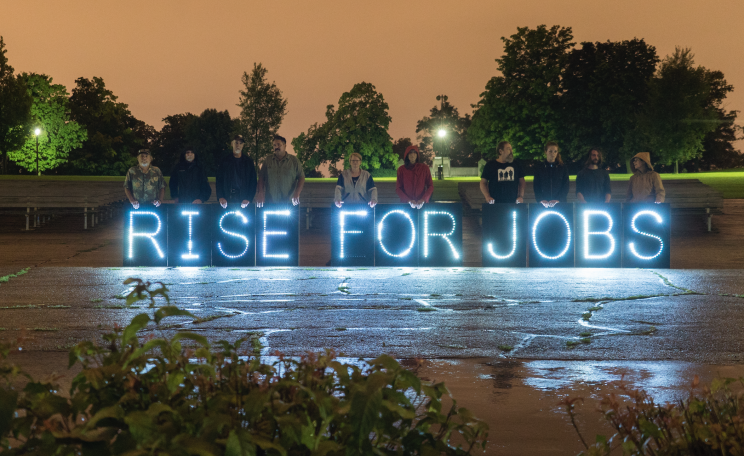*
There are the rumblings of rebellion across the world. From the bridges of London where ordinary people want to be arrested to the schools of Australia where pupils are striking. The shared aim of these groups is averting climate catastrophe.
The ‘green revolution’ with its utopian ideal of a transition to a low carbon economy - where all are winners with a cleaner economy and green pounds in our pocket - has been joined by the far from utopian ‘Extinction Rebellion’ - demanding immediate action.
Aside from traffic delays causing comedian Jim Davidson extreme frustration, can the call for rebellion be justified?
Social justice
The debate about climate has moved on from the false balance of ‘science’ and ‘denial’ to one about rights and power - the essence of a rebellion. The democratic process has failed to deliver real solutions to the issues. This necessitates more direct political engagement – the right to protest and rebel.
The rights of younger people - and future citizens - are being eroded and oppressed by the current political and economic masters of our planet. This is typified by the rise of populist politicians, such as President Trump, who makes a virtue of feeling secure financially in the short term at the expense of long-term environmental insecurity.
We stand at an interesting crossroads in the way we talk about climate. My friends and colleagues are returning from holidays with their children boiling with anger about the immediacy of the risks of climate change and the costs their offspring will have to pay for our lack of action.
Adair Turner (a former guardian of financial stability as head of the Financial Services Authority) can say on BBC radio that he ‘shares the aims’ of the Extinction Rebellion, whilst also promoting the benefits of the transition to a low-carbon economy.
At Abundance we also promote the positive opportunity of investment in clean energy technologies and the idea that green economic growth can boost social justice. But is that enough to produce the change we need?
Fiduciary duty
Arguably the human right that is most constrained and eroded has been our right to control our money. Democracy is not only about exercising political will and rights, it is also about access to and control of financial capital.
In the case of climate change, financial capital is a claim on the future and how we exercise those claims has a direct impact on the rights of future generations.
Conventional wisdom is that ‘fiduciary duty’ is to protect our pensions and our investments no matter what the long-term cost to the planet.
We have become a society that promotes stability above all else, especially financial stability. The oxymoron is that it creates runaway climate change, resulting in the destruction of the environment and natural resources upon which we depend as a species.
Our system of money is far from democratic. Institutions like pension funds are accountable to governments and officials rather than directly to the electorate, despite the fact that their decisions impact our economic future.
Although, they are sensitive to their reputations for looking after the financial interests of ‘the people’ and we are starting to see some movement in the right direction.
Evaluating risk
Financial rebellion is no longer a simple case of ‘moving your money’, it is about campaigning for reform of the financial system, which must also include what the wealth accountants refer to as ‘natural capital’ and what we call our shared home.
We need to shift our focus from counting our trillions in the present - using clever accounting tricks to justify asset valuations - to evaluating the risk of those assets to and from climate change.
So yes, we need to resist and rebel. While humans are betting on the future of the planet, you might want to check whether you are betting against yourself and the health and wellbeing of future generations.
This Author
Bruce Davis is managing director of Abundance Investment, which advertises with The Ecologist.






